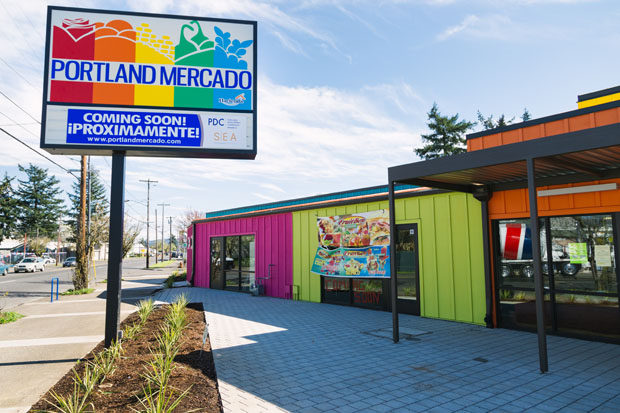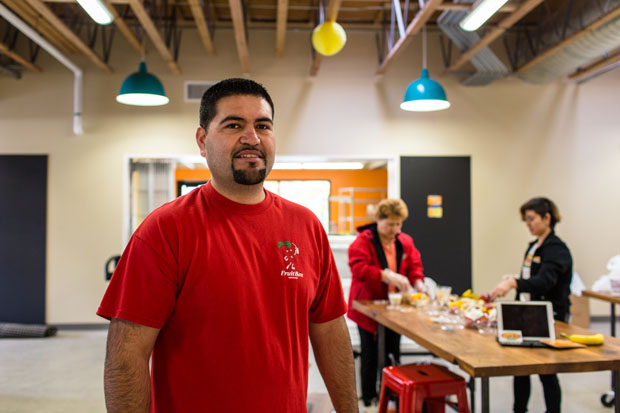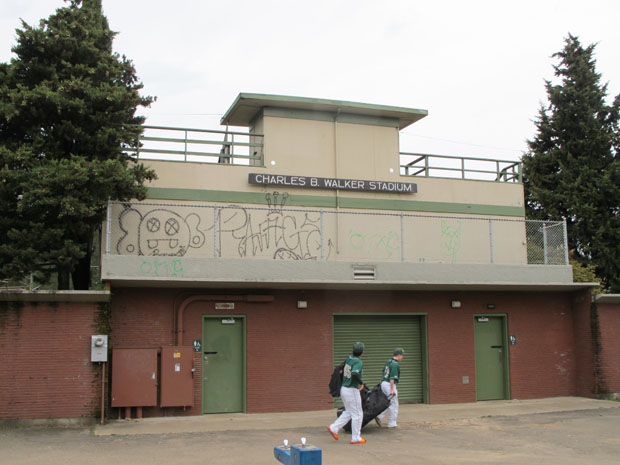BY JACOB PALMER
Five years in the making, the Portland Mercado — the city’s first Latino public market — will celebrate its grand opening April 11. A $3.5 million public-private partnership spearheaded by Hacienda CDC, the market will house 15 to 20 businesses in the food, retail and service sectors. It has some big-name funders, including the Paul G. Allen Family Foundation and JPMorgan Chase. The project goals are equally ambitious: to improve cross-cultural understanding, alleviate poverty and spur community economic development.
BY JACOB PALMER | Photos by Sam Scott
Project: Portland Mercado
Developers: Hacienda CDC
Location: SE Portland
Launch: April 2015

 Five years in the making, the Portland Mercado — the city’s first Latino public market — will celebrate its grand opening April 11. A $3.5 million public-private partnership spearheaded by Hacienda CDC, the market will house 15 to 20 businesses in the food, retail and service sectors. It has some big-name funders, including the Paul G. Allen Family Foundation and JPMorgan Chase. The project goals are equally ambitious: to improve cross-cultural understanding, alleviate poverty and spur community economic development.
Five years in the making, the Portland Mercado — the city’s first Latino public market — will celebrate its grand opening April 11. A $3.5 million public-private partnership spearheaded by Hacienda CDC, the market will house 15 to 20 businesses in the food, retail and service sectors. It has some big-name funders, including the Paul G. Allen Family Foundation and JPMorgan Chase. The project goals are equally ambitious: to improve cross-cultural understanding, alleviate poverty and spur community economic development.
Fruitbox owner and founder Rogelio Cortez is a member of the Mercado’s inaugural class of businesses. Cortez runs a juice and snack bar in Salem and was looking for a way into the Portland market when he saw an advertisement seeking entrepreneurs for the new market.
“I like that the Mercado is not just: ‘Let’s start a business and make money,’” Cortez says. “It’s about uniting, making something great that’s good for the people.”
A Mexican native, Cortez hopes to broaden the palate of Portland snack food connoisseurs. Americanized name notwithstanding, Fruitbox will serve fresh tortas, fruit salads with “special Bionico topping,” homemade cream and Angelitos & Diablitos: shaved ice with homemade syrups. “A lot of things we’re trying to do in-house so people can get a feel for our flavor, not just the common ones they can get [elsewhere],” Cortez says.
Not all Mercado vendors are immigrant business owners. Patrik McDade, from Tucson, Arizona, oversees People-Places-Things, a communications company offering tutoring, translation and interpreting services, as well as workshops on language, culture and ethnicity. PPT got its start in 2011 training native speakers how to teach English in a culturally responsive way, McDade says. “What has grown out of that is a number of support services for anyone who speaks another language or comes from another cultural background.”
That mission is a good fit for the Mercado, McDade says. “People talk about the triple bottom line. That is meaningful to us. Your business model needs to bring in not just cash but also social good.”
Roll call
The selection process for Mercado vendors was “complex and evolved over time,” according to Jamie Melton, Hacienda’s community economic development marketing coordinator. To create an ecosystem of sorts, the group selected a broad array of consumer products and services businesses. Some but not all of the vendors participated in Hacienda’s business incubator, Micro Mercantes, where they received marketing training and financial assistance — including no-interest loans from Kiva, an online lending platform. The best part of the deal may be the free food carts, which Hacienda subsidizes, saving vendors as much as $3,000.
BY JACOB PALMER | Photo by Jacob Palmer
Next Year in Lents
It seems like every year Portland officials announce a grand scheme to revitalize the Lents neighborhood — only to have those plans collapse, with a whimper or a bang. But really: Development in the Lents area is about to take off.
In 2016 former Seattle Mariners broadcaster Ken Wilson and the city of Portland will team up to bring Rose City Baseball to Walker Stadium in Lents Park. The college baseball summer developmental team will provide $400,000 toward the restoration effort, and the city will spend $250,000 — including $200,000 from the Portland Development Commission.
“The goal is to have that park used all the time,” says Wilson, who hopes his operation will make the park a destination and neighborhood attraction. “We want the ballpark to be busy; we want games being played all the time.”
Other projects are also moving forward. The PDC is finally selling off several of its properties to private developers, who appear ready to build in the neighborhood. Several builders, including Pearl District pioneers Homer Williams and Dike Dame, have submitted proposals to construct mixed-use projects featuring market-rate and affordable housing in addition to ground-floor retail.
Another builder, Chad Rennaker, is planning Lents’ first brewpub — Z Haus. The pub will help anchor a project featuring 160 apartment units and a glass-covered public plaza for a farmers market.
“People are skeptical,” says Nick Christensen, former chairman of the Lents Neighborhood Association. “But the energy and commitment is there to break the logjam and build the business district we all want to see in Lents.”



